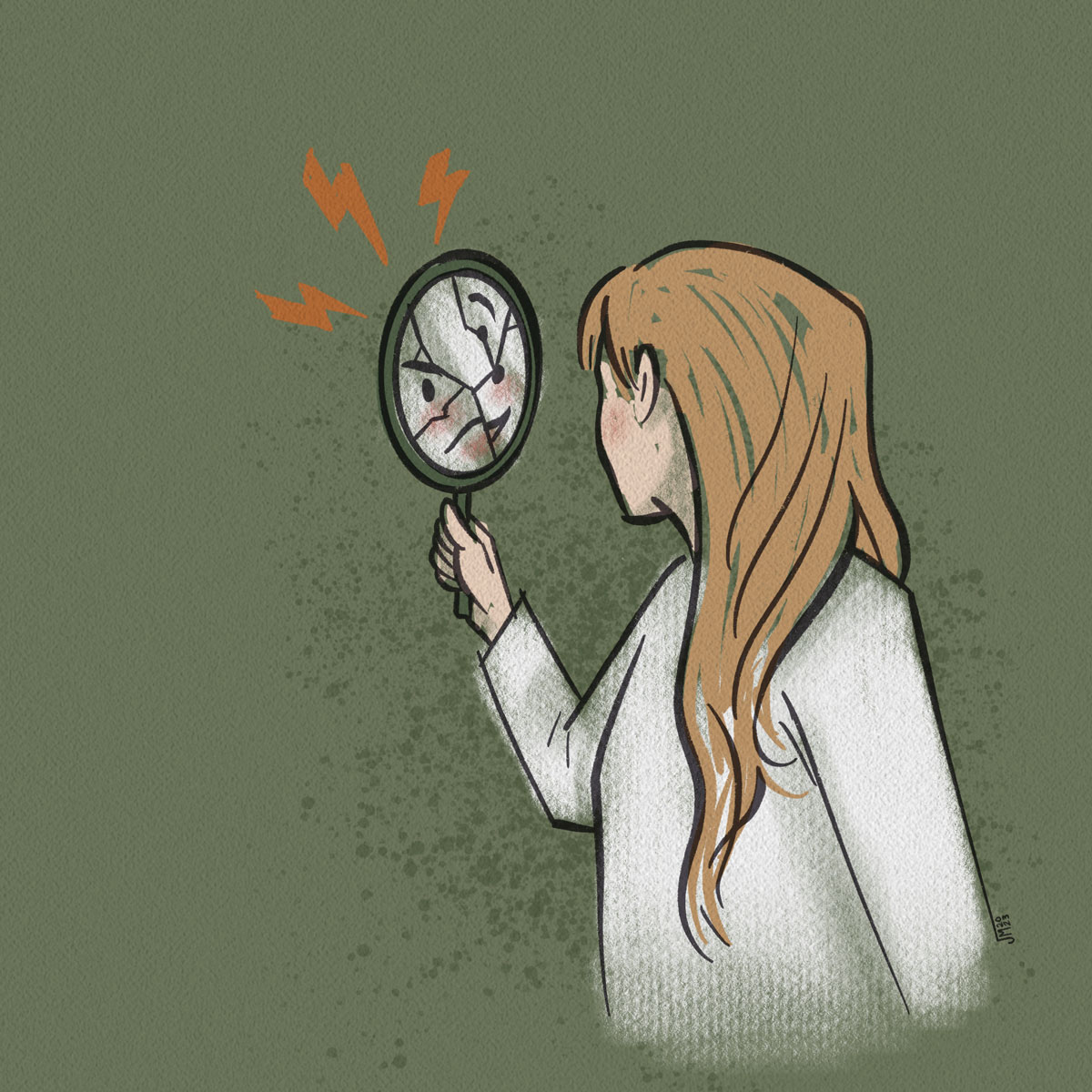Highly stigmatized and often misunderstood, people with BPD need compassion, understanding and access to effective treatment.
Imagine a 3-year-old child named Ellie who lives with a dysfunctional parent struggling with untreated mental illness. When Ellie seeks comfort or affection, the parent may ignore Ellie, scream at her, or even shove her away. Ellie has few stable, supportive relationships, and the important people in Ellie’s life often neglect and abuse her.
Ellie grows up wanting attention and affection, as most of us do. However, for her it feels desperate. Ellie is very sensitive, she feels intense emotions and she doesn’t have the tools necessary to regulate her feelings and develop secure relationships.
In adolescence and adulthood, Ellie flirts excessively, dives headfirst into relationships, has trouble trusting people, behaves impulsively, and acts out to try to get what she needs. Ellie lives in fear that her loved ones will abandon her. Sadly, her behavior often pushes them away.
Can you empathize with Ellie or understand her challenges? Do you recognize yourself or a loved one in her story? While not everyone with Borderline Personality Disorder (BPD) has a history like Ellie’s, many report having experienced childhood trauma.
No matter the cause, there’s a vulnerable, lovable person underneath the challenging behaviors common to BPD. Moreover, there are effective treatments to help people with BPD learn to cope with their difficult emotions and respond to others in more constructive ways.
Read on to learn more about Borderline Personality Disorder and how to manage it. You can even take a brief quiz to see if you have traits of the disorder.

What is Borderline Personality Disorder?
BPD is a mental health condition that makes it extremely difficult to regulate your emotions. Without emotional control, you may act impulsively and do things that negatively impact your relationships and your feelings about yourself.
You may struggle from severe mood swings multiple times a day, feeling okay one minute and utterly devastated, full of rage, desperate or hopeless the next.
You may feel uncertain about how you see yourself and others and change your mind rapidly, swinging from intense like to intense dislike.
Together, these challenges can cause turbulence in your relationships, encourage you to engage in unhealthy coping mechanisms, and pile on additional emotional pain.
Symptoms of BPD
Signs and symptoms of BPD usually begin to emerge in adolescence. If you have BPD, you may experience some or all of these symptoms.
- A pattern of intense and unstable relationships with family, friends, and loved ones.
- A distorted and unstable self-image or sense of self.
- Efforts to avoid real or perceived abandonment, such as plunging headfirst into relationships—or ending them just as quickly.
- Impulsive and often dangerous behaviors, such as spending sprees, unsafe sex, substance abuse, reckless driving, and binge eating.
(Note: If these behaviors happen mostly during times of elevated mood or energy, they may be symptoms of bipolar disorder and not borderline personality disorder.) - Self-harming behavior, such as cutting or burning.
- Recurring thoughts or threats of suicide.
- Intense and highly variable moods, lasting from a few hours to a few days.
- Inappropriate, intense anger or problems controlling anger.
- Chronic feelings of emptiness.
- Feelings of dissociation, such as feeling cut off from yourself, observing yourself from outside your body, or feeling as if everything is unreal.
While these symptoms often cause significant distress and impairment, it’s not uncommon for someone to have BPD without realizing it.
Quiz for Borderline Personality Disorder
This online test can help you determine whether you have traits of BPD. There are no strings attached, and we don’t ask you to share any identifying information. This quiz is for information purposes only and is not intended for diagnosis.
Other conditions that may resemble BPD
Symptoms of BPD may overlap with one or more of these conditions. A licensed mental health provider can help you distinguish symptoms from one disorder versus another. At the same time, it’s also possible to have more than one disorder.
Causes of BPD
Like most mental health conditions, evidence suggests that BPD is caused by a combination of environmental and genetic factors.
Family History If you have a parent or sibling with BPD, you may be at higher risk of developing the disorder.
Brain Differences Research shows that people with BPD are more likely to have structural or functional changes in areas of the brain that regulate emotion and control impulses. However, we don’t know whether these changes cause BPD or vice versa.
Environmental Factors Studies have found that early childhood trauma, emotional and physical abuse, parental mental illness, and financial hardship during childhood more strongly predicted BPD symptoms later in life, especially if the events occurred in preschool years [1]. Many people with BPD report having experienced unstable, invalidating relationships and/or abuse, neglect and dysfunction in their household environment.
Treatment for Borderline Personality Disorder
The first line of treatment for BPD is psychotherapy, with a licensed therapist either one-on-one or in a group setting. Medication may be added to improve emotional symptoms.
Dialectical behavior therapy (DBT) is a type of cognitive behavioral therapy often used with people who engage in self-destructive behaviors and have trouble regulating their emotions. It teaches people a variety of skills to improve symptoms and functioning, such as mindfulness, distress tolerance, interpersonal effectiveness and emotion regulation.
Cognitive behavioral therapy (CBT) may also help reduce mood swings and self-harming behavior. It helps people identify and change negative thinking in order to respond more effectively to challenging situations.
Next Steps
If you suspect that you or someone you love struggles with Borderline Personality Disorder or other mental health issues, you might benefit from talking to a mental health professional.
Call your doctor or contact Athena Care, for mental health care in Tennessee. One of our Care Coordinators will help you get the care you need.
Call your doctor or contact Athena Care, for mental health care in Tennessee.
One of our Care Coordinators will help you get the care you need.

Rachel Swan, MS
Editor
Rachel has a Masters of Science in Clinical Psychology from Vanderbilt University, where she spent 16 years as a Research Analyst in the Psychology and Human Development Department.


